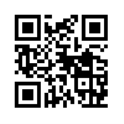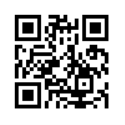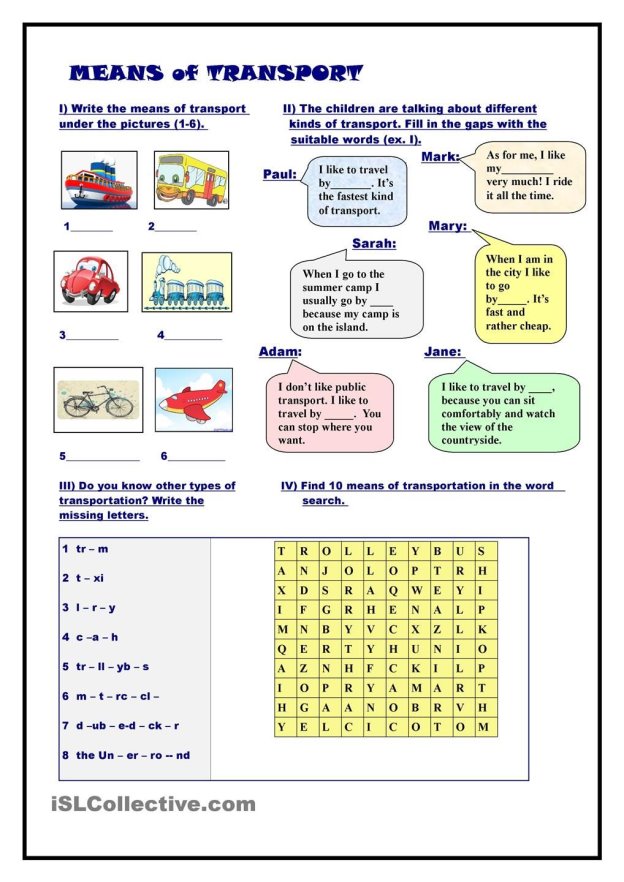Travelling is impossible without transport
Iryna Nykolyshyn (Baranivka Lyceum 1, Zhytomyr region)
Тема: Travelling. Means of Transport. (the 6th form)
Урок узагальнення та систематизації знань.
Motto: «Travelling is impossible without Transport».
Цілі уроку:
- поглибити і закріпити знання учнів про різні види подорожування, їхні переваги та недоліки; поповнити словниковий запас учнів фразовими дієсловами, активізувати їх використання в мовленні;
- практикувати вживання в мовленні лексико-граматичний матеріал з теми; вдосконалювати навички читання, аудіювання, говоріння та письма;
- виховувати позитивне ставлення до подорожування; підвищувати інтерес до вивчення іноземної мови, необхідність її вивчення для майбутньої професії.
Procedure
- Introduction
- Greeting
T: Good morning, dear friends. I’m pleased to see you at our lesson. I hope you are fine and we’ll have wonderful minutes of communication.
Do you get up early? When have you got up today? Do you get to our lyceum on foot, by bus, by car or by bike? How long does it take it to get there?
(Students’ answers.)
T: So, the topic of our today’s lesson is «Travelling. Means of Transport». Today you’ll practice the vocabulary related to this topic, make acquaintance with some of the phrasal verbs. We’ll do a lot of various activities, which will develop your reading, writing, listening and speaking skills.
- Warming-up
Activity “Name 5”
T: Let’s begin our lesson from some activities.
- name 5 means of transport
(a car, a plain, a train …)
- name 5 words on the topic “Travelling” beginning with the letter “t”
(a travel, a ticket …)
- name 5 reasons why people travel
(on business, for pleasure … )
- name 5 proverbs or sayings about travelling
(“Every departure has its arrival”. “A vise companion is half the journey”).
(Students’ answers)
III. Main Part
- Revising the Vocabulary
T: We have spoken a lot about travelling at our previous lessons. Let’s revise your knowledge and enrich them.
Lexical Game (Group work)
T: I want you to split into three groups, and play the game “Who is quicker?” Your task is to choose appropriate names of vehicles and put them into the right envelope (road vehicles, air vehicles, water vehicles). We will use the materials, which have prepared by members of our English club.
- Speaking (Work in pairs)
T: What do people think about when they choose the way of travelling?
Suggested answers: They think is it fast or slow, expensive or chip…
T: Right you are. All ways of travelling have their advantages and disadvantages. Moreover, people choose one according to their plans and destination. Now let’s talk about pros and cons of travelling by means of transport.
- Listening
Pre-listening task
T: Tell me please, what is your future profession? Do you have a driving licence?
(Am. driver’s license) At what age in Ukraine can young people drive a car (ride a motorbike)? (Students’ answers.)
T: Listen to a person who’s speaking about his job. Guess what job it is.
Before listening to the text, let’s revise some of the useful words and word combinations:
to require, such qualities as, traffic, rush hours, on average, to suit the job
Typescript
Do you like changes? It’s boring to stay at the same place all the time. Modern life is impossible without travelling and therefore without people whose job is the same as mine. My work is very interesting. I visit many places, meet many new people.
The best thing about my job is if you don’t want to get up in the morning and go to work, you don’t. You can get out of bed when you want and go to work when you want. There’s no boss telling you when to go to work, when not to go to work; and that’s the great part about the job.
But on the other hand, my work is difficult. I work at any time, in any weather. Actually, when you don’t go to work, you don’t get paid. The work requires moral and physical strength. It requires such qualities as great attention, quick reaction, good knowledge, courage.
I usually work 10-12 hours a day and make on average about thirty journeys. I mostly work in the centre of London, but I travel a hundred and fifty to two hundred miles a day.
It’s a good idea to help people and try to do that any time they ask for. The only thing I really hate is traffic. It’s really terrible, especially in rush hours.
Post-listening task
T: What job it is? (taxi driver). Listen again and answer the question.
What special features of character do you need to be a taxi driver?
Suggested answers: Taxi driver should be moral and physically strong …
T: What special traits of character do you need to suit the job you have chosen?
Suggested answers: Car mechanic should be clever, hardworking …
T: I am convinced that it doesn’t matter what you do or where you work; the only thing which is important – to be good at what you do.
- Relaxation. “It’s interesting to know”
T: I see you are a bit tired. Let’s have a rest. We have some materials about transport in London. I hope it will be interesting and useful for you. Do you know:
- What is the name of a famous red bus?
(It is called a red double-decker.)
- What means of transport isn’t there in London?
(There are no trams in London now.)
- What is special about the traffic in London?
(Londoners have left hand traffic.)
- Have you ever wondered why the British drive on the left?
(There is an historical reason for this. In the Middle Ages you never knew who you were going to meet when travelling. Most people are right-handed, so if a stranger passed by on the right of you, your right hand would be free to use your sword if required. Today, only 35% of countries drive on the left.)
6. Practising Grammar
1) Writing the definition
T: Working with different vehicles demands using special phrasal verbs. Let’s have a look at the screen and write down the definition: Phrasal verb is a verb that is made up of a main verb together with an adverb or a preposition or both. There is a great variety of phrasal verbs. They are used very often and will be helpful for you during your External Independent Evaluation.

- Watching video
T: Let us watch the video. While watching pay attention on some phrasal verbs concerning travelling and transport:
- the phrasal verbs get on/get off talk about entering or exiting a mass transport such as a plane, a train, or a bus;
 - if we are talking about a car, a taxi, or a truck we use get in/get out.
- if we are talking about a car, a taxi, or a truck we use get in/get out.
- Practising phrasal verbs
T: We have learned just a small part of the phrasal verbs today. We’ll continue to study them at our next lessons.
Let’s practise using some phrasal verbs, referring to transport.
Task 3.
Fill in the gaps with right particles:
away in off on out of
- The boy stopped, got ________ his bicycle, and walked into the shop.
- They arrived, got ________ the taxi and went into the theatre.
- The police didn’t catch the thieves and they got ______.
- They went to the station and got _______ a train for London.
- “OK, get _______ the car, it’s time to go.”
Keys: 1. off; 2. out of; 3. away; 4. on; 5. in.
Conclusion
- Summarizing. Reflection
Magic bicycle
T: During our today’s lesson, we have spoken a lot about different ways of travelling, their advantages and disadvantages; have been acquainted with some of the phrasal verbs, concerning travelling and your future profession. I hope this information was interesting and will be useful for you. Now, I want you to take a note from the magic bicycle and finish the sentences.
Complete the sentences
- Modern life is impossible without …
- Travelling is very …
- The fastest way of travelling is travelling by …
- Travelling on foot is called …
- My favourite way of travelling is travelling by …
- You can enjoy a sightseeing tour in London by …
- This vehicle can take off and land vertically. It’s a …
- If you are a tourist and you don’t have a car, you can take a …
- Travelling is impossible without ...
Suggested answers: 1. travelling; 2. exciting; 3. plane; 4. hiking; 5. car; 6. double decker bus; 7. helicopter; 8. taxi; 9. transport.
(Appendix 4)
2. Evaluation
T: Our lesson comes to the end. I’d like to thank you for your work during the lesson. In my opinion, you really work hard and deserve the following marks …
3. Home Assignment.
T: Learn by heart the driving phrasal verbs. Make up 7-10 sentences with them. Revise all the material on the topic «Travelling». Be ready for the test.
Our lesson is over. I hope it was fruitful for everyone. Goodbye!
 The children are talking about different kinds of transport. Fill in the gaps with the suitable words.
The children are talking about different kinds of transport. Fill in the gaps with the suitable words.
Match the verbs in A with the definition in B
A B
1. to break down a) to be powered by
2. stow away b) to hide on a ship, or other vehicle,
in order to travel secretly or without paying
3. to do up/fix up c) to fasten the belt
4. to buckle up d) to chase someone or something
5. to drop off e) to enter a car
6. to get in f) to stop working because of mechanical
failure
7. to turn off g) to drive someone where they want to
8. to run after h) to leave the road that you are travelling
along
9. to run out i) to repair, arrange, mend something
10. to run on j) to be finished, to have none left
Keys: 1. f); 2. b); 3. i); 4. c); 5. g); 6. e); 7. h); 8. d); 9. j); 10. a).
Magic bicycle Complete the sentences
- Modern life is impossible without …
- Travelling is very …
- The fastest way of travelling is travelling by …
- Travelling on foot is called …
- My favourite way of travelling is travelling by …
- You can enjoy a sightseeing tour in London by …
- This vehicle can take off and land vertically. It’s a …
- If you are a tourist and you don’t have a car, you can take a 9, Travelling is impossible without …
- Modern life is impossible without …
- Travelling is very …
- The fastest way of travelling is travelling by …
- Travelling on foot is called …
- My favourite way of travelling is travelling by …
- You can enjoy a sightseeing tour in London by …
- This vehicle can take off and land vertically. It’s a …
- If you are a tourist and you don’t have a car, you can take a
- Travelling is impossible without …
Suggested answers:
1. travelling; 2. exciting; 3. plane; 4. hiking; 5. car; 6. double decker bus;
7. helicopter; 8. taxi; 9. transport.


про публікацію авторської розробки
Додати розробку
